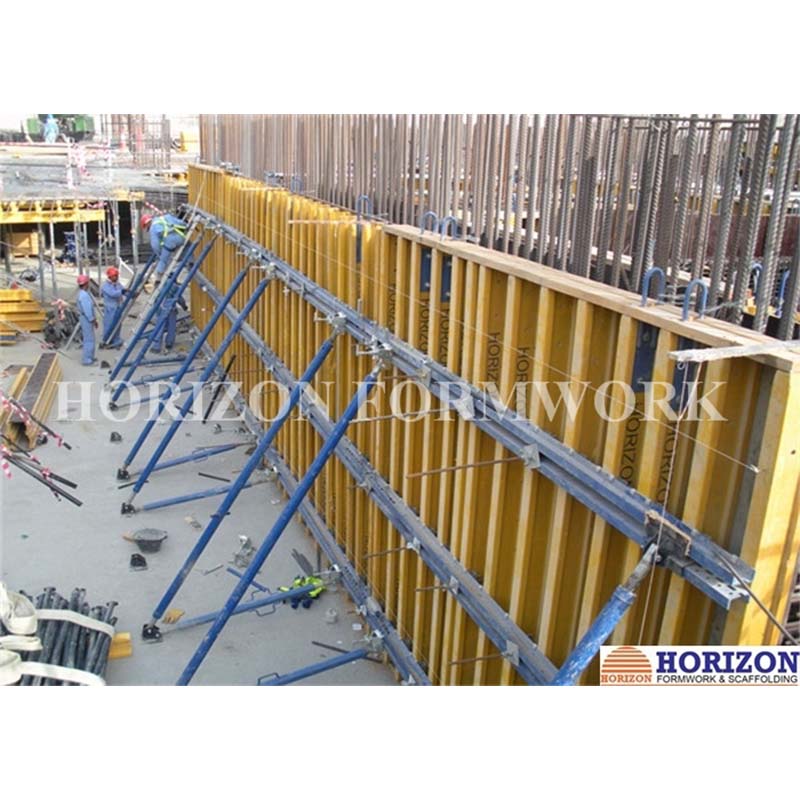Nov . 28, 2024 15:59 Back to list
Supplier of Conventional Formwork Solutions for Construction Projects
The Role of Traditional Formwork Suppliers in Modern Construction
In the realm of construction, the integrity and efficiency of a project heavily rely on the quality of its formwork systems. Traditional formwork, which includes materials such as timber, steel, and plywood, has been a cornerstone in the building industry for decades. Despite the rise of modern alternatives, traditional formwork suppliers continue to play an essential role in ensuring that structures are built to last. This article delves into the significance of these suppliers and the benefits they bring to contemporary construction practices.
Understanding Traditional Formwork
Traditional formwork serves as a temporary mold into which concrete is poured to create structural components like walls, floors, and columns. The material choice often depends on the specific requirements of the project, the expected load-bearing capacity, and the desired finish. Timber formwork, for instance, is prized for its flexibility, ease of use, and cost-effectiveness. On the other hand, steel formwork offers durability and reusability, making it a preferred choice for large-scale projects.
The Expertise of Traditional Formwork Suppliers
Traditional formwork suppliers are not just vendors; they are vital partners in the construction process. Their expertise lies in understanding the specific needs of projects and providing tailored solutions. These suppliers work closely with architects, engineers, and contractors to ensure that the formwork system meets safety standards, is cost-effective, and aligns with the project’s timeline.
Moreover, these suppliers often offer additional services such as formwork design, custom fabrication, and on-site support. This level of involvement helps to streamline the construction process and minimize the risk of delays or errors. When contractors collaborate with seasoned traditional formwork suppliers, they gain access to invaluable knowledge that can significantly enhance the project’s efficiency and quality.
Environmental Considerations
As sustainability continues to be a crucial factor in construction, traditional formwork suppliers are adapting to meet these environmental challenges. Many suppliers now focus on sourcing materials responsibly and providing options that minimize waste. For instance, using timber from sustainably managed forests not only lessens the environmental impact but also enhances the aesthetic appeal of the finished structure.
traditional formwork supplier

Additionally, reusing formwork systems is becoming more prevalent. Progressive suppliers are developing strategies to ensure that materials can be repurposed, thereby reducing the overall carbon footprint of construction activities. This commitment to environmental responsibility aligns with the growing demand for greener building practices and demonstrates the vital role that traditional formwork suppliers play in sustainable construction.
The Advantages of Traditional Formwork
Although modern formwork solutions like engineered and modular systems offer certain advantages, traditional formwork remains popular for various reasons. Its adaptability to different shapes and sizes is a key factor, allowing for intricate designs that may be challenging to achieve with rigid, pre-fabricated systems. Furthermore, traditional formwork can be constructed on-site, providing flexibility during the construction process.
Cost-effectiveness is another significant advantage. For projects with budget constraints, traditional formwork can often be more affordable, particularly for smaller jobs or when immediate timelines are involved. The availability of skilled labor who are familiar with traditional formwork techniques also contributes to smoother execution and the potential for cost savings.
The Future of Traditional Formwork Suppliers
Looking ahead, traditional formwork suppliers must evolve to remain competitive in a rapidly changing construction landscape. Embracing new technologies, such as digital design and automation, can enhance their service offerings and improve operational efficiency. Integrating these advancements while maintaining their foundational expertise in traditional methods will position them favorably in the market.
Additionally, as the construction industry continues to prioritize sustainable practices, traditional formwork suppliers must innovate to offer environmentally friendly solutions. By staying attuned to industry trends and client demands, these suppliers can ensure their relevance in the future of construction.
Conclusion
In conclusion, traditional formwork suppliers are indispensable in the construction industry. Their expertise, combined with a commitment to quality and sustainability, enables them to deliver solutions that meet the diverse needs of modern projects. As the industry evolves, these suppliers will continue to adapt, ensuring that traditional formwork remains a viable and essential option for builders around the world. By embracing both tradition and innovation, they will not only enhance their contributions to the construction sector but also uphold the integrity of the structures we rely on every day.
-
Heavy Duty Props EN1065 Certified - Adjustable Steel Shoring for Formwork
NewsJul.21,2025
-
Heavy Duty Tripod & Fork Head: Stable Camera Mount for Pro Shots
NewsJul.21,2025
-
High-Quality U Head Jack Scaffolding – Reliable Scaffolding Jack Head Manufacturer & Factory
NewsJul.08,2025
-
High-Quality I Beam H20 Leading Timber Beam H20 Material Factory, Exporters & Manufacturers
NewsJul.08,2025
-
High-Quality Powder Coating Steel Formwork - Durable & Corrosion Resistant Solutions
NewsJul.07,2025
-
Inclined Column Formwork Supplier – Durable & Precise Solutions for Unique Structures
NewsJul.07,2025